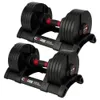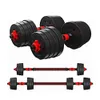I did 50 hamstring curls every day for a week — here's what happened to my lower body
Writer Lucy worked her hamstrings with this simple, yet painful exercise
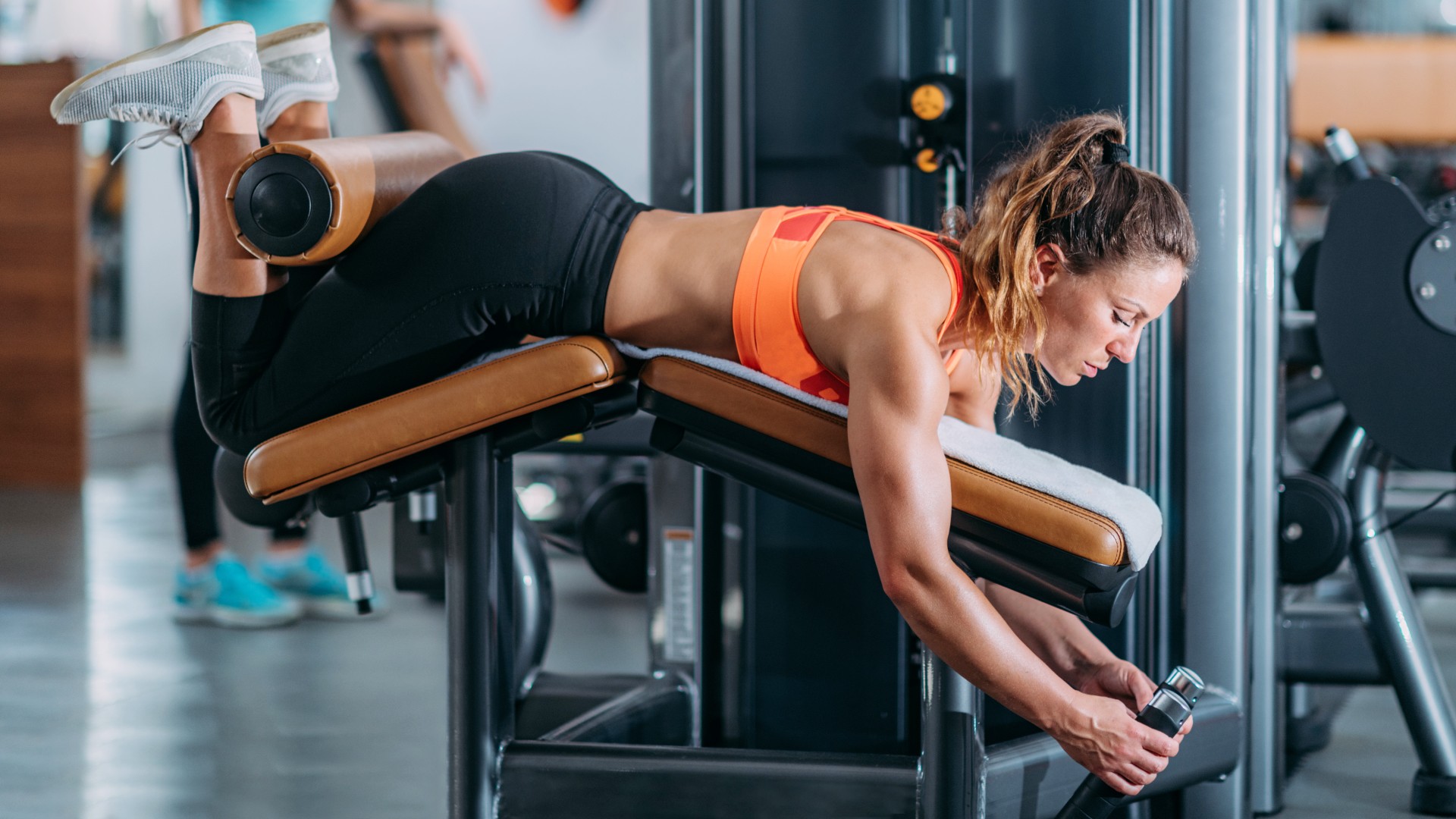
Our legs pack some serious muscles, with some of the biggest being the hamstrings — a group of three muscles running down the back of the thighs.
When you extend your leg or bend your knee, the hamstrings work. Essentially, when you walk, run, jump, or generally do any movement that requires your lower body, the hamstrings play a part. Naturally, ensuring your hamstrings are strong enough to power you through everyday movement is pretty important.
The good ol’ hamstring curl is a great exercise for strengthening the hamstrings. And to make life a little easier, most gyms will have a hamstring curl machine available. It’s often called a lying leg curl, FYI.
Will Duru, personal trainer and founder of Will Power Fitness, explains: “Strong, active hamstrings are important as they help to support the muscles in the back, therefore reducing the chance of pain and injury. The hamstrings also support the knees, so strong hamstrings may reduce knee pain too.”
With that in mind, I decided to hop on the machine at my local gym and do 50 reps of hamstring curls every day for a week, to see if I noticed any difference. Here’s what happened.
How to do a hamstring curl
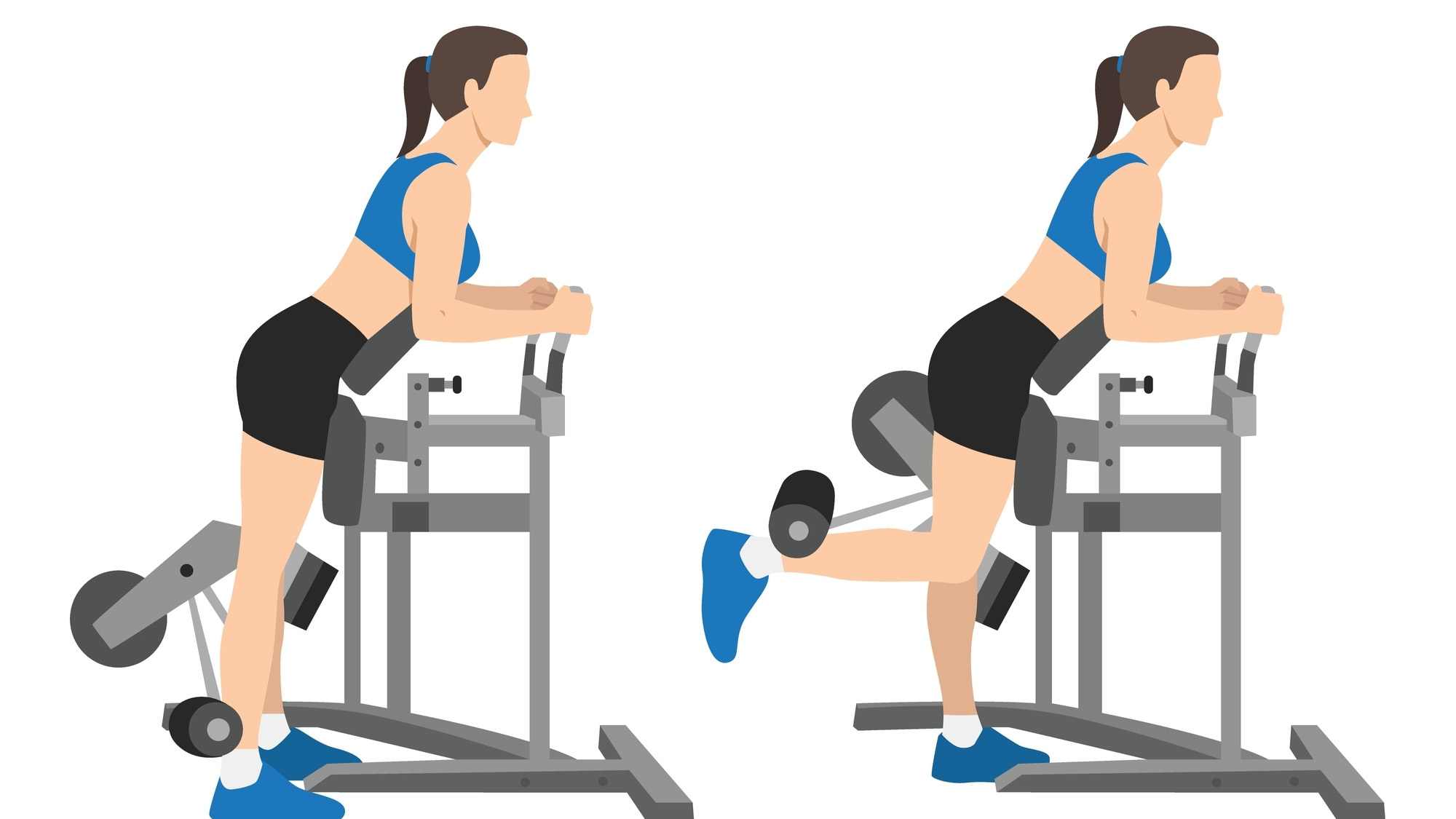
- Lie face down on the machine with your quads and torso on the padded areas.
- Adjust the lever at the back of the machine so that the pad sits just below your calf muscles with both legs extended
- Grab onto the handles at the front of the machine near your head, then curl your lower legs upward. Go as far as you can without your quads lifting from the padded area.
- Pause, then slowly lower your legs to the starting position.
Make sure your body stays as still as possible throughout the movement to help isolate the hamstrings. No hamstring curl machine? Will says you can also do a hamstring curl using a stability ball.
“This requires you to lie on the ground and put your calves and heels hip-width apart on a stability ball. Keep your arms down on the ground. Drive your hips up so your body is straight and roll the ball out so your legs are straight. You should feel this in your hamstrings." Next, roll the ball back in towards your glutes, bending your knees.
Sign up to get the BEST of Tom's Guide direct to your inbox.
Get instant access to breaking news, the hottest reviews, great deals and helpful tips.
“This requires your core to work a little harder as you lift your hips and legs off the floor and keep them stable whilst you roll the ball in and out,” he says.
Here’s what happened when I did 50 hamstring curls every day for a week.
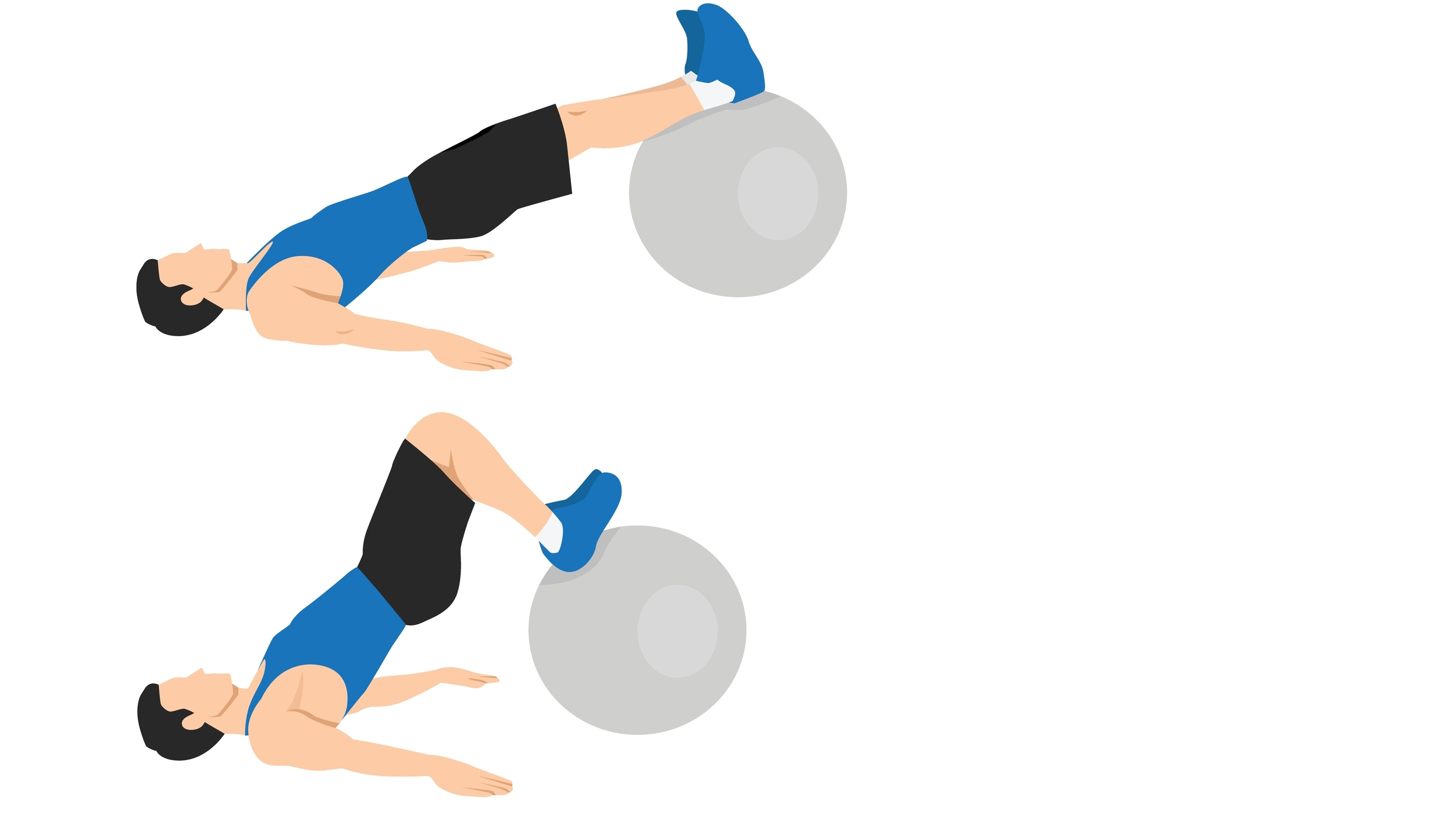
I went heavy most days
I didn't want to make this challenge too easy, and as someone who spends a lot of time at the gym, I thought I would give this my best shot. I broke my 50 reps into four to five sets of 10 to 13 reps, ensuring that the last rep of each set was tough. As in, scrunched-up-face tough.
As I always say when teaching fitness classes: “What doesn’t challenge you won't change you.” I wanted to really reap the benefits of the hamstring curl.
Oh, how I hobbled
Naturally, pushing myself on the hamstring curl meant my poor hammies were in bits by the end. On occasion, I hobbled my way to the ladies changing rooms at the end of my workout.
I did two drop sets of hamstring curls during my week-long challenge, completing several reps at a heavier weight then doing more reps at a lighter weight and continuing this until I’d done all my reps. With minimal rest, this hurt the most and I staggered off the hamstring curl machine with throbbing hamstrings.
I balanced out the hamstring curls with a quad-focused exercise
The quad muscles, which sit at the front of the thighs, are powerful muscles with an opposing role to the hamstrings. When the hamstrings assist with knee flexion, for example, the quads work to straighten the knee (knee extension).
Both these muscle groups need training, and while I was doing my 50 hamstring curls, I also made sure to do quad-based exercises such as the seated leg curl, wall sits and even jump squats.
Will explains: “The quads are typically stronger than the hamstrings, however, both need to be trained to avoid too much of an imbalance. If you’re training hamstrings, make sure you also train your quads, which are the muscles that run along the front of your thighs. An imbalance in these muscles can lead to injuries with one muscle being too weak to support the other.”
I hope (in time) this will support my running
As any runner knows, strong legs can help with power and endurance and reduce the chances of developing a lower-body injury. I’ve always felt pain in my hamstrings when I run, so I hope that continually working on my hamstring strength will mean they can pound the pavement for longer, without feeling sore.
By the end of the week, my squats improved
It didn’t take long for me to notice a difference in my squats; not so much the weight I could use, but the fact that I had greater control at the bottom of the squat.
Will explains: “In order to have control of the squat, particularly when you’re loaded up with weight, you need to activate and strengthen the core, glutes, hamstrings and quads. If one of these muscles is weak, you’ll likely struggle to keep your hips aligned as you drop down into a squat and drive yourself back up. You’ll also struggle to add more weight to your squat.”
Making sure my hamstrings are working as they should and building up some hamstring strength will no doubt make a big difference to my squats.
I did 50 hamstring curls every day for a week: my verdict
The best thing about strengthening my hamstrings has to be the fact I noticed such improvements in my squat control. Previously, my hips were swinging around all over the place but now, I feel stronger and far more able to pause at the bottom and push myself back up without my hips rocking side to side.
Although I used to sporadically include hamstrings curls within my workout routine, I will now make a point of including them more regularly as part of my regime. Ultimately, you can’t expect to have a balanced body if you’re not training all the muscles, and unfortunately, my hamstrings were a muscle group often neglected.
Should you include hamstring curls in your workouts? It’s a huge yes for me.
More from Tom's Guide
- Who needs leg raises? Try this lower abs exercise to strengthen your core and hips instead
- Forget the gym — this 20-minute walking workout builds full-body strength and boosts your metabolism
- You only need 2 dumbbells and 6 moves to build full-body muscle and boost your metabolism
Lucy is a freelance health and fitness journalist as well as a pre and post-natal personal trainer. Although a sweaty gym session (skipping rope is a must) is her favorite way to ‘relax’, she’s also a fan of bingeing on The Office, snacking on chocolate-coated raisins, and fizz-filled brunches with friends.
